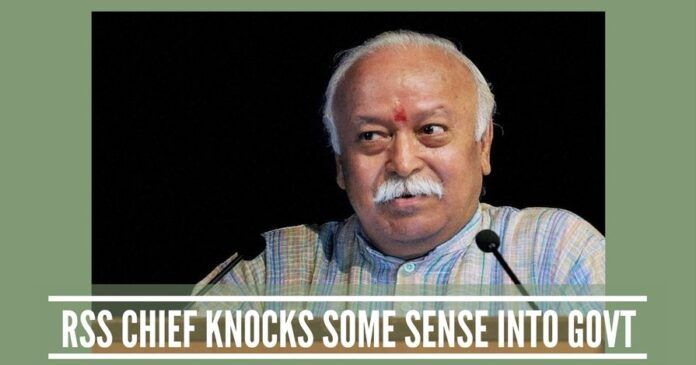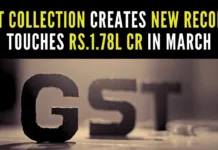
The Finance Minister-led GST Council, announced a number of steps intended to reduce procedural rigours as well as the tax burden on SMEs
The Narendra Modi government’s positive and prompt action on Rashtriya Swayamsevak Sangh chief Mohan Bhagwat’s appeal, that small businesses be afforded succour, will surely help a large number of people. The action, however, also raises a few questions: Why does the RSS chief have to intervene? Didn’t the Finance Ministry have any sensitivity towards and concern for the small & medium enterprises? Whatever happened to the earlier tall claims by Finance Minister Arun Jaitley and other government functionaries that all was hunky-dory with the implementation of goods and services tax (GST)?
There are three types of taxpayers under the composition scheme: trading firms, paying 1% tax; manufacturing firms (2%); and restaurants (5%)
It was not some introspection or internal discussion occasioned by low gross domestic product (GDP) figures, tepid exports, an outcry from the SME sector that led to the course correction. It was Bhagwat’s Dussehra address that goaded the government to act. “While reforming and cleaning the economic systems, although some tremors and instability are (sic) expected, it should be kept in mind that these sectors (SMEs) should feel the minimum heat and ultimately they should get the maximum strength,” Bhagwat had said in his speech.
The government action was swift. The Finance Minister-led GST Council, which met on Friday to review the execution of the new tax regime, announced a number of steps intended to reduce procedural rigours as well as the tax burden. So, now small businesses would have to file tax returns on a quarterly instead of monthly returns which was the earlier provision.
Further, the eligibility of the composition scheme has been raised from Rs 75 lakh (it is lower in some states) to Rs 1 crore. According to an official website, the scheme “is an alternative method of levy of tax designed for small taxpayers… The objective of composition scheme is to bring simplicity and to reduce the compliance cost for the small taxpayers. Moreover, it is optional…”
There are three types of taxpayers under the composition scheme: trading firms, paying 1 percent tax; manufacturing firms (2 percent); and restaurants (5 percent).
The Finance Ministry has also reduced tax rates in certain cases, for instance, from 28 percent to 18 percent on some stationery items and diesel engine parts. As many as 27 items, including sliced dry mangoes, unbranded namkeen, and chapatti, will now have lower rates.
Modi has given up on his party’s core supporters in a bid to gain the support of the much more numerous poor people
To address the working capital issues of exporters, the government has introduced e-wallets. There will be an e-wallet for each exporter with a notional advance refund amount. The e-wallet will be implemented by April 1, 2018, till then they can file GST on the rate of nominal 0.1 percent, the Finance Minister said.
One hopes that the slew of measures announced by the government would bring some relief to the SME sector, the sector that has borne the brunt of the Modi regime’s quixotic steps, the biggest of them being demonetization, and the clumsy implementation of the GST regime. The fact that the RSS boss had to intervene on behalf of small businessmen and traders, the BJP’s traditional constituency, underscores the communication gap between them and the ruling party.
I have written earlier that the BJP is the only party in the country, if not in the world, that torments its own constituency, be it shopkeepers or the salaried. The Atal Bihari Vajpayee regime gave its own constituency’s concern short shrift by trying to please liberals and appease Muslims; Modi has given up on his party’s core supporters in a bid to gain the support of the much more numerous poor people. As if the interests of Middle India were in conflict with those of the poor.
Much as the Modi dispensation claims that it is Nehruvian socialism, it still has faith in the cardinal principles of socialism, one of them being the class struggle theory. What Modi and his cronies don’t realize is that the failure of socialism is now a well-established fact; it is accepted by all save professional revolutionaries. The sooner they dump socialist thinking—which results in idiocies like the GST implementation—the better it is for them and the nation.
Note:
1. The views expressed here are those of the author and do not necessarily represent or reflect the views of PGurus.
- Liberty Is Penalized, Violence Goes Untouched - December 21, 2019
- Rahul’s Howdy bloomer - September 22, 2019
- Chidambaram’s hypocrisy - August 22, 2019











BJP is taking the slogan ‘ garibi Hatao’ from Congis.
It worked for Congis, why not BJP?
[…] Read the full article: https://www.pgurus.com/rss-chief-knocks-sense-govt/ […]